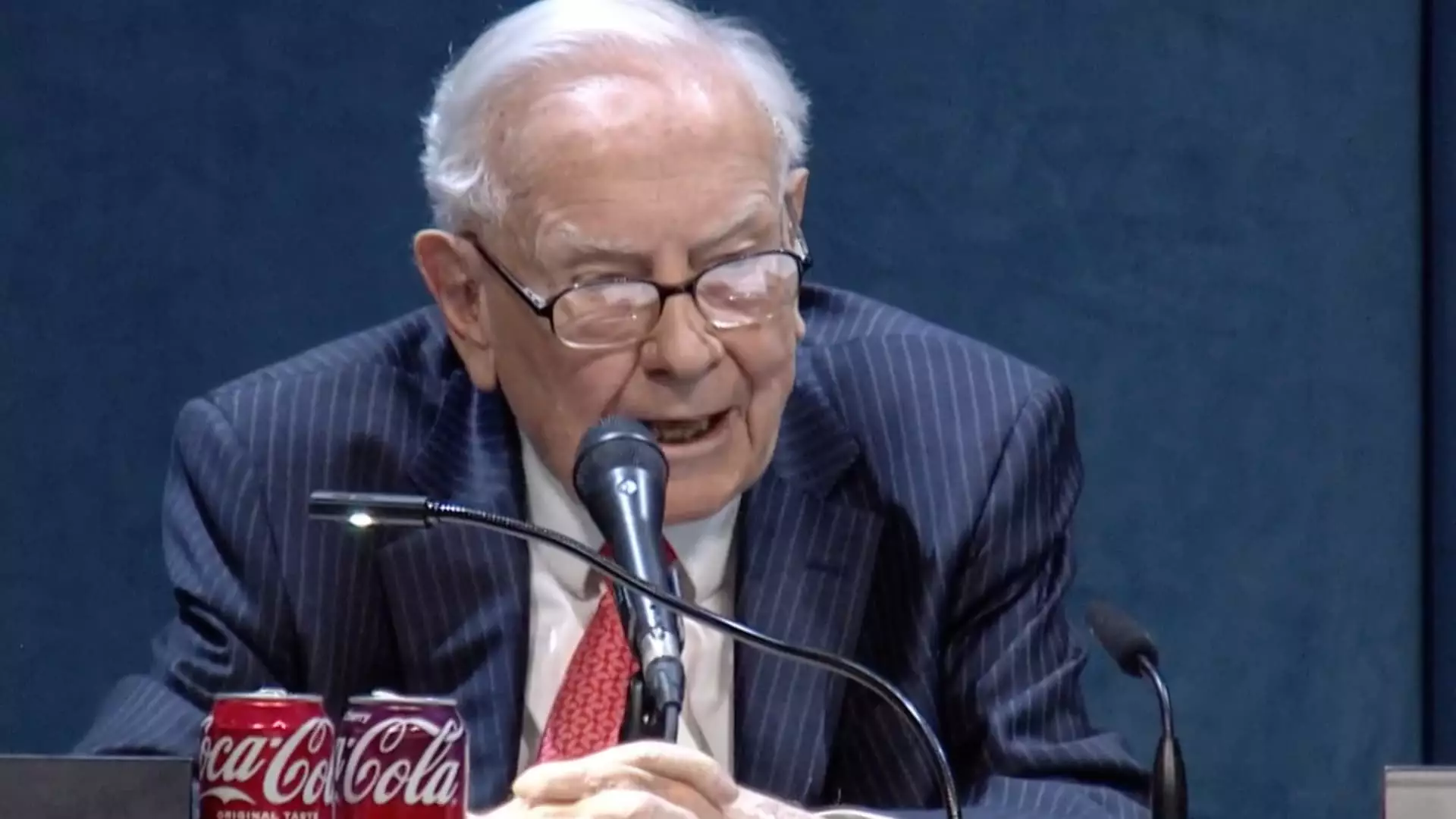Warren Buffett, a name synonymous with investment wisdom, recently delivered a powerful critique of America’s hardline trade tactics during Berkshire Hathaway’s annual meeting. Though he refrained from directly naming President Trump, the implications were crystal clear: imposing punitive tariffs is counterproductive. “Trade should not be a weapon,” he asserted, highlighting the detrimental effects of mercantilist policies that prioritize isolation over collaboration. Protectionism, in its essence, creates more division than unity, and it’s crucial to understand that financial prosperity should be shared rather than hoarded.
Buffett’s stance echoes a growing concern in the liberal camp—an awareness that trade barriers only serve to alienate international partners and inflate costs for average Americans. By isolating the nation economically, we not only risk escalating tensions with trading partners but also stifle our innovation and competitiveness on the global stage. His warnings serve as a vital reminder that a prosperous world leads to a prosperous America, contradicting the misguided belief that our success must come at the expense of others.
The Psychological Warfare of Trade Wars
Throughout his comments, Buffett articulated the psychological ramifications of aggressive trade policies. He claimed that tariffs can lead to what he termed “attitudes that bring out bad things,” suggesting that animosity generated from trade wars breeds a culture of distrust both domestically and internationally. This contention resonates with the liberal notion that policies should foster cooperation rather than conflict.
It’s alarming to consider the historical precedents of trade conflicts spiraling into broader geopolitical tensions. As Buffett noted, “Trade and tariffs can be an act of war.” In a world that’s already rife with uncertainty, adopting an aggressive stance against trade does little to bolster national security; rather, it fosters an environment where allies can quickly become adversaries.
The Global Economy: A Collective Enterprise
Buffett’s warnings highlight the interconnectedness of the global economy. In a time when isolationism seems appealing to some, Buffett argues that collaboration is essential for long-lasting success. As he pointed out, the notion that prosperity for other nations equates to loss for America is fundamentally flawed. For an economy with the size of America’s, thriving within a global context means recognizing that all parties must excel—there’s no zero-sum game here.
He emphasized that the prosperity of 7.5 billion people shouldn’t be seen as a threat but rather as an opportunity. This is a particularly resonant point for those who favor center-wing liberal policies—those who believe in economic equity and recognize that the health of businesses in Europe or Asia can directly impact American employment and innovation.
Market Volatility: An Investor’s Nightmare
As expected, Wallace Buffett’s comments were not merely philosophical; they had a tangible connection to market realities. The initial public airing of tariffs had led to extreme fluctuations on Wall Street, with stocks reacting to the uncertainty that comes from unpredictable policies. According to Buffett, the uncertainty brought about by tariffs has led him to take a defensive position for Berkshire—selling off more than $134 billion worth of stock this year.
In a world dominated by rapid economic changes, instability in trade policies translates to instability in markets. Such expeditious moves can deter investors, lead businesses to rethink their global supply chains, and ultimately hurt everyday consumers. It is integral for policymakers to realize the weight of their decisions, particularly when they could lead to market contractions, as seen in the latest GDP report.
Fostering Long-term Vision
Finally, Buffett’s assertions reinforce the critical need for long-term strategic planning in matters of trade and economics. By focusing on isolationist tactics and trade wars, the U.S. risks squandering decades of international relationships and partnerships built on trust and shared economic aspirations. His disillusionment is a call to action, urging leaders to adopt more profound, visionary policies that prioritize sustainable growth over short-term gains.
The “Oracle of Omaha” encapsulates the essence of pragmatic capitalism by advocating for cooperation over confrontation. In an era marked by political turbulence and economic uncertainties, returning to the fundamentals of mutually beneficial relationships may provide the path forward—a pathway that champions not just economic prosperity but also fosters global camaraderie.

